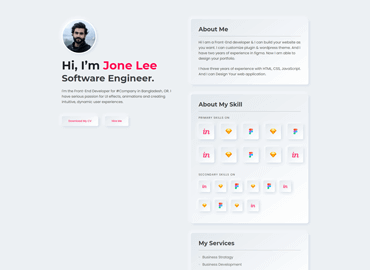In today’s digital age, businesses are increasingly turning to web applications (web apps) to streamline their operations, enhance customer experiences, and gain a competitive edge. Web apps offer numerous advantages over traditional software applications, making them an attractive choice for companies of all sizes. In this blog post, we’ll explore the top benefits of web apps for businesses.
- Accessibility and Cross-Platform Compatibility Web apps are accessible from any device with an internet connection and a web browser, eliminating the need for installation or specific hardware requirements. This cross-platform compatibility ensures that your employees, customers, and stakeholders can access the web app seamlessly, regardless of their operating system or device.
- Lower Costs and Easier Maintenance Compared to traditional software applications, web apps typically have lower upfront costs and require fewer resources for deployment and maintenance. Updates and bug fixes can be implemented on the server-side, eliminating the need for individual installations on each device, thus saving time and reducing IT overhead.
- Scalability and Flexibility Web apps are designed to be scalable, allowing businesses to easily accommodate growth or fluctuations in demand. With cloud-based hosting, resources can be scaled up or down as needed, ensuring optimal performance and cost-effectiveness. Additionally, web apps offer flexibility in terms of feature additions or modifications, allowing businesses to adapt quickly to changing requirements.
- Improved Collaboration and Data Access Web apps facilitate seamless collaboration by providing real-time access to shared data and resources. Employees can work together on projects, share information, and make updates simultaneously, regardless of their physical location. This enhanced collaboration can lead to increased productivity and better decision-making.
- Enhanced Security and Centralized Data Management With web apps, sensitive data is stored on secure servers, reducing the risk of data loss or unauthorized access on individual devices. Centralized data management ensures that all users have access to the latest information and that data is consistently backed up and protected.
- Automatic Updates and Improved User Experience Web apps are designed to provide a consistent and seamless user experience across devices. Updates and new features are automatically rolled out to all users, ensuring that everyone has access to the latest version and functionality. This eliminates the need for manual updates and ensures a streamlined and up-to-date experience for users.
- Integration with Other Web Services Web apps can easily integrate with other web services and APIs, enabling businesses to leverage a wide range of functionalities and data sources. This integration can lead to increased efficiency, better data analysis, and the creation of more comprehensive and powerful solutions.
As businesses continue to embrace digital transformation, web apps offer a compelling solution that addresses various operational challenges and enhances productivity, collaboration, and customer experiences. By leveraging the benefits of web apps, companies can stay competitive, adapt to changing market conditions, and provide a seamless experience for their employees and customers alike.































